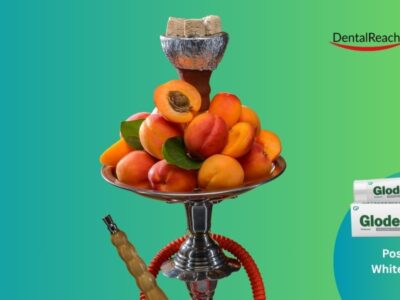The last teeth of milk finish their eruption between 20 months and 33 months and these will remain in the mouth until the age of 11 or 12 years. Primary teeth play an important role in permanent dentition as they prepare and maintain the location of the teeth until the eruption occurs between 6 years and 13 years.
Brushing should be done at least twice a day, using a soft bristle brush and fluoride toothpaste (the size of a pea toothpaste is sufficient). If the child has a susceptibility to tooth decay, brushing should also be followed by every meal and every sweet or sticky snack.
The young child observes and seeks to imitate. Encourage him to hold the brush and brush himself. However, you must always complete the brushing because the child does not acquire the dexterity required until the age of 6 years and sometimes even 8 years! Children under 6 must always be accompanied by an adult when brushing their teeth to ensure that every surface is cleaned, to make sure the child does not swallow toothpaste and rinses properly his mouth.
Some children have spaced teeth and others have tighter teeth. No toothbrush can clean properly when two teeth are in contact. The decay can develop there, only the dental floss will make it possible to complete these places. To do this, at least once a day, your child will need your help until he has the required skill. The sooner you start flossing, the better your dexterity and the sooner you’ll be inclined to include that excellent habit in your daily routine.
Your child should continue to visit the dental hygienist every six or twelve months, depending on the frequency established to ensure optimal follow-up, according to his needs. It is always good to prepare the child well before the visit: history books and role plays will help you. Prefer an appointment in the morning because the child is at this time well rested. The visits will mainly consist of a polishing of the teeth, a fluoride application and personalized advice from the dental hygienist.
The troughs and furrows of the chewing surface of the permanent teeth easily trap food debris and bacteria from the bio-film (dental plaque), thus promoting the development of decay. As soon as the first permanent molars have erupted (around the age of six) and according to the morphology that they will present, sealing may be advisable. This resin will fill the hollows and furrows and, combined with good hygiene, prevent the development of cavities.
The choice of snacks is important for your child’s dental health. Fresh fruits and vegetables and some cheeses are great snacks for his dental health. 100% pure fruit juices are preferable to fruit drinks or cocktails, which are very high in sugar and low in vitamins. However, a large amount of juice promotes an acidic environment, conducive to cavities. Nothing better than water to appease big thirsts. Finally, make sure your child consumes enough dairy products.
Bonus: Download our monthly e-bulletin!Click here to get it
DISCLAIMER : “Views expressed above are the author’s own.”




















Comments